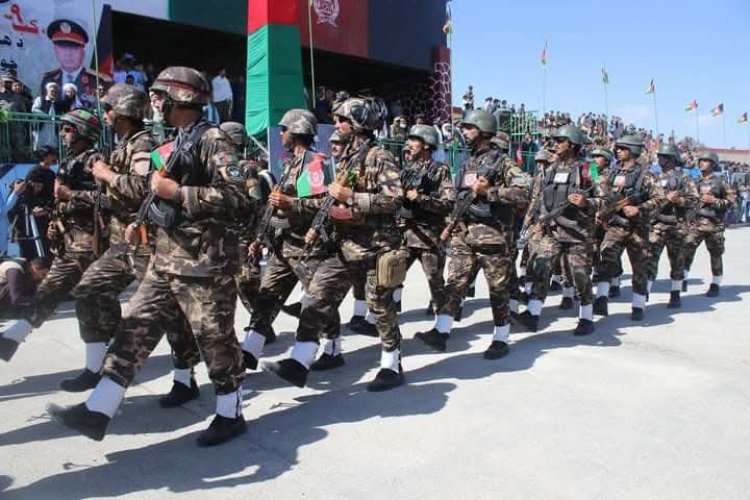Former Afghan Soldiers Face Threats and Arrests After Returning to the Country

Among the many Afghan refugees forcibly deported from Iran and Pakistan in recent months are a number of former soldiers from the previous republic government who have been expelled back to Afghanistan against their will.
Jahanzeb (a pseudonym) is one such former soldier who recently returned to Afghanistan with his family of four after being deported from Iran. He says that following the fall of the former government, he fled to Iran for his safety and spent nearly four years there.
He explains that since the start of the forced deportations from Iran, the identities of many former military personnel have been exposed, and now, he and several of his recently deported comrades are facing serious threats to their lives.
“I served as a national soldier for years in Kandahar, Helmand, and Herat provinces,” he says. “After the fall of the government, I crossed into Iran through Islam Qala, hoping to eventually reach Germany with my family—but I never succeeded. In the end, Iranian police forcibly deported me back to Afghanistan. Now, I feel my life is in danger. I don't feel safe. I’m suffering from economic hardship, fear, and unemployment.”
He adds that after returning to the country, in addition to poverty and an uncertain future, the fear of arrest has forced him into a kind of "house arrest," where he lives in despair, joblessness, and destitution.
According to him, the combination of an unclear fate, financial hardship, joblessness, psychological pressure, and fear of arrest has left him exhausted and struggling to survive.
“I can’t even go to the market with peace of mind because of my fear of the Taliban,” he says. “One of my friends who returned from Iran was arrested by the Taliban on charges of having ties with the Resistance Front. On one side, there are economic problems, and on the other, the fear of being detained has driven me to psychological illness.”
Nasibullah (a pseudonym) is another former soldier who served for years in various parts of the country, participating in operations against the Taliban. He, too, recently returned to Afghanistan through Torkham, along with his seven-member family, after being deported from Pakistan.
He says that because of poverty and the fear of arrest, he is unable to work freely in the market and has developed a form of psychological illness due to constant anxiety.
“I served for years defending my country, but now all of that means nothing,” he says. “Since returning from Pakistan, my financial problems have increased, and I don’t feel safe at all. Many of our fellow former soldiers have recently been killed under various pretexts.”
This former soldier now lives in a rented house on the outskirts of Jalalabad city in Nangarhar province. He says that his situation is worsening day by day.
“I don’t own a home, so I’m living in a rented one,” he explains. “Whatever savings I had are nearly gone. My children have dropped out of school. If I don’t find work here or my safety isn’t guaranteed, I’ll be forced to migrate again to Pakistan or Iran—because I have no other option.”
Meanwhile, the United Nations recently expressed concern that refugees who have been forcibly returned from Pakistan and Iran—particularly former Afghan soldiers, women, journalists, and civil activists—are facing serious human rights violations.
The UN stated that the Taliban have particularly targeted returnees from Iran and Pakistan, especially women, girls, former soldiers, media workers, and civil society activists, subjecting them to harassment, torture, and imprisonment.
These concerns come as the pace of forced deportations from Iran and Pakistan intensifies, and reports of former soldiers being targeted, detained, killed, or disappeared inside Afghanistan continue to rise.
